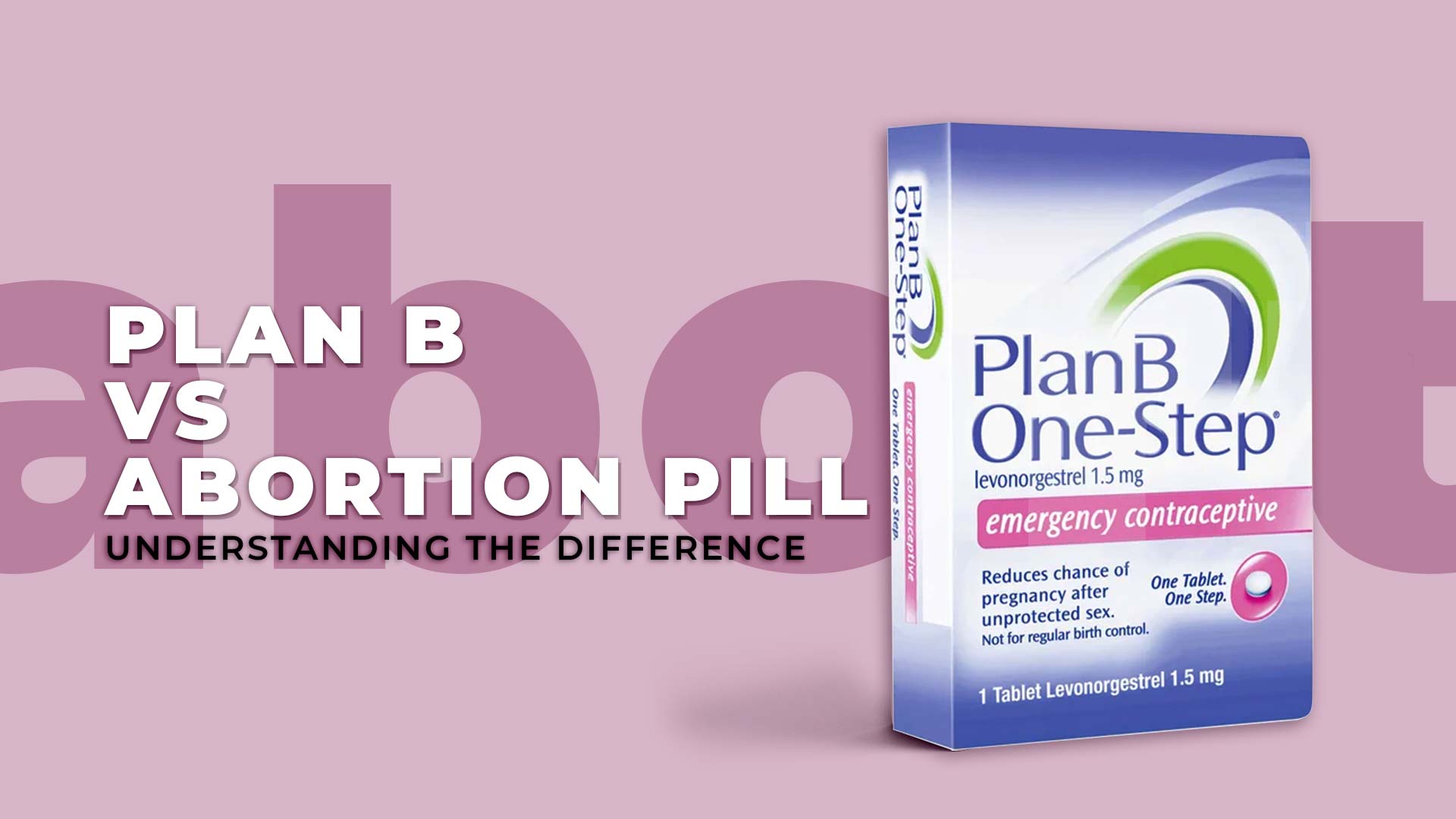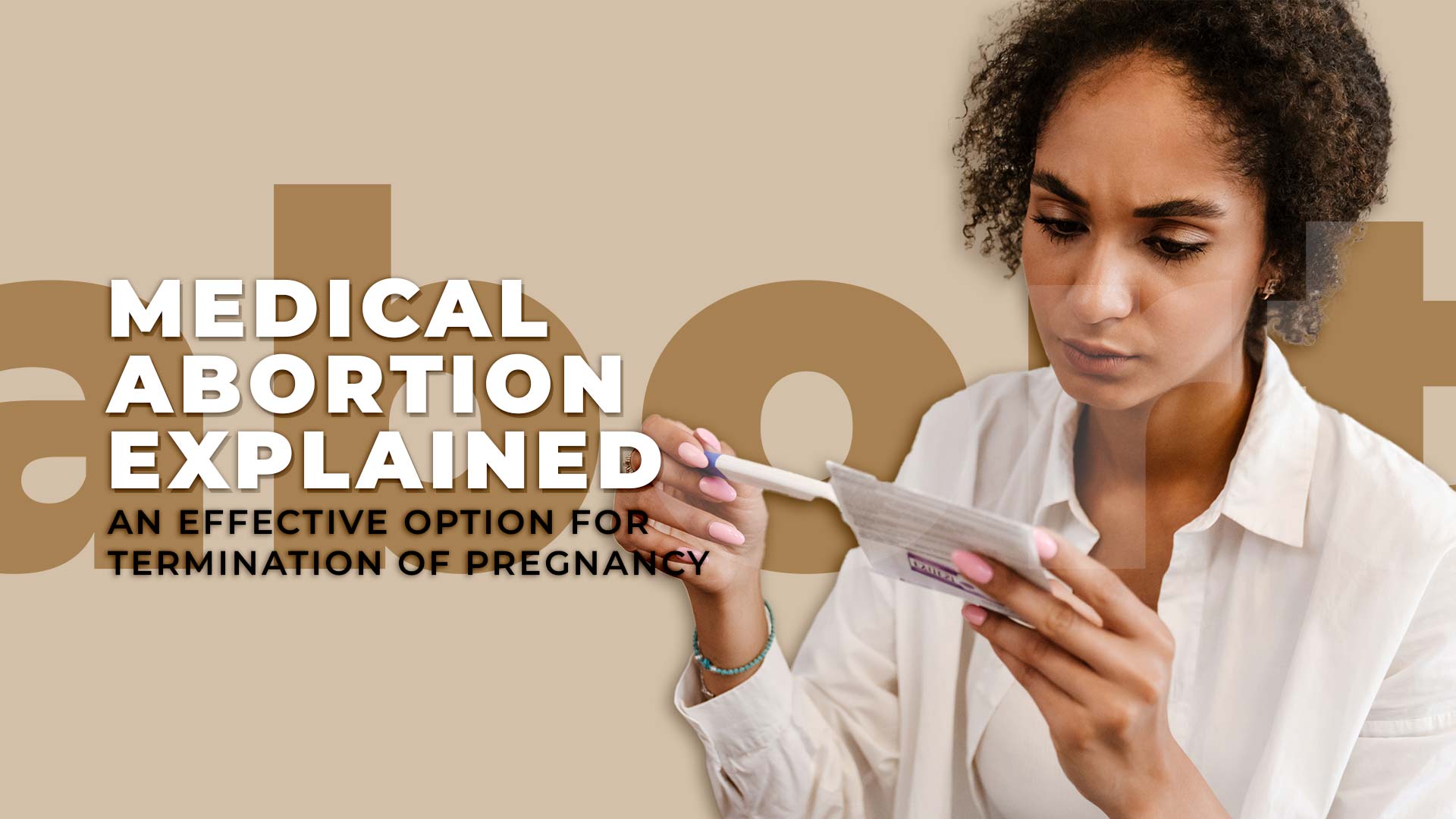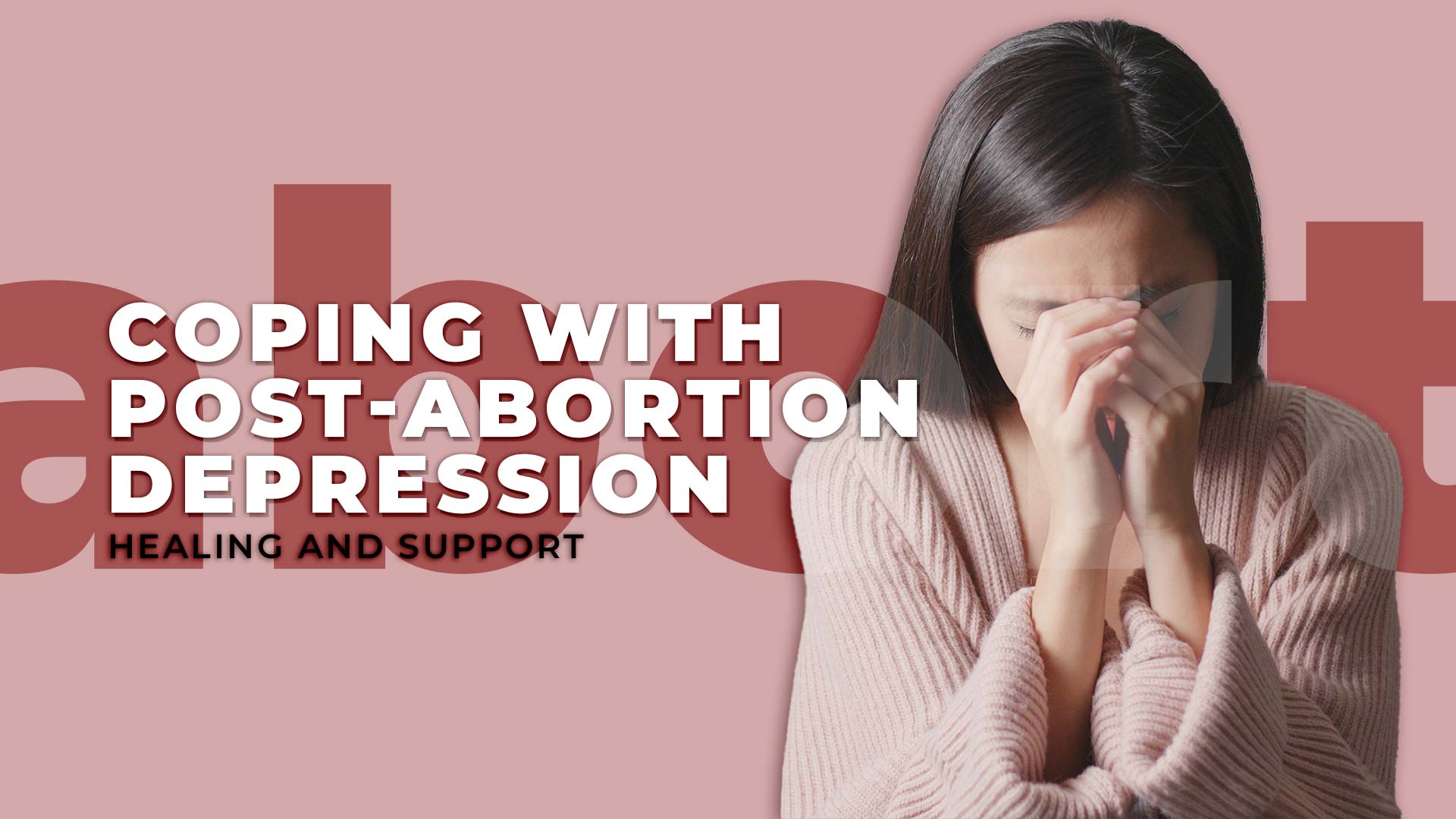There is often a great deal of confusion and misinformation surrounding emergency contraception, with one common misconception being that it is a form of abortion. This misunderstanding can cause hesitation for some individuals when considering whether to take a medication like Plan B One-Step (levonorgestrel).
However, we are here to clarify that emergency contraception, including Plan B, is not an abortion pill, nor are any other forms of emergency contraception. These pills and the copper IUD are intended to prevent pregnancy when taken shortly after unprotected sexual activity and are a form of birth control.
Further information regarding how Plan B operates and its differences from abortion pills can be found below.
Is Plan B The Same As Abortion Pill?
To simply answer, no, Plan B is not the same as abortion pill and does not result in abortion or miscarriage. Plan B, or the morning-after pill, functions as a type of emergency contraception that includes levonorgestrel, a synthetic progestin hormone. Taking Plan B within 120 hours of sexual activity can aid in avoiding pregnancy, but it is ineffective if a person is already pregnant.
Plan B cannot terminate an already established pregnancy. Although pregnancy is listed as a contraindication by the manufacturer of Plan B, research has shown that it cannot harm an unborn baby. Plan B will not work if someone is already pregnant.
Abortion pills in MTP kits such as mifepristone and misoprostol (Cytotec) work differently from Plan B. Mifepristone prevents the body’s natural progesterone, which is necessary to begin and maintain a pregnancy. Misoprostol prompts the cervix to dilate and the uterus to contract, allowing tissue to be expelled. Taking these medications can effectively terminate a pregnancy during the first 10 weeks.
What Causes Confusion between Plan B and Abortion Pills?
There is ongoing debate about the mechanisms through which Plan B pills operate, and different perspectives on the onset of pregnancy also contribute to the confusion.
Following sexual intercourse, becoming pregnant can take up to one week and involves multiple stages, including ovulation, fertilization (when a sperm penetrates an egg), and implantation (when the fertilized egg or zygote attaches to the uterus).
Medical organizations like the National Institutes of Health (NIH) and the American College of Obstetricians and Gynecologists (ACOG) define pregnancy as beginning with implantation, which is the third step listed above. However, some individuals believe that pregnancy starts with fertilization.
The ambiguity around Plan B stems from the possibility that it may function after fertilization. Nonetheless, the majority of research suggests that Plan B is not effective after fertilization.
How Does Plan B Work?
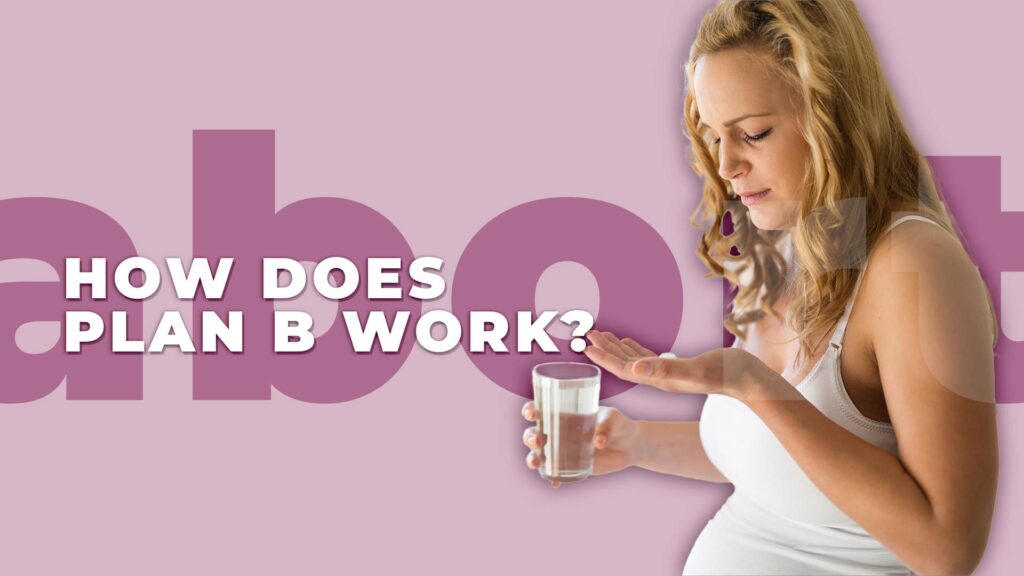
Plan B is an emergency contraceptive medication that comes in a single-dose pill containing levonorgestrel, a lab-manufactured form of progesterone (a sex hormone). It is readily available over-the-counter (OTC) and does not necessitate a prescription.
When you take Plan B, it postpones ovulation (the release of an egg) for several days. This implies that there is no egg available for sperm to fertilize, and thus, no pregnancy.
Additionally, Plan B is believed to thicken the cervical mucus, which can create a barrier that makes it more challenging for sperm to swim and reach an egg.
Other emergency contraception pills that contain levonorgestrel include Take Action and My Way, among others.
It is essential to note that if the fertilized egg has already implanted, emergency contraception will not terminate or harm the pregnancy.
Another crucial consideration is that Plan B may not be as effective in individuals who weigh over 165 pounds. In such cases, a different kind of emergency contraception to consider is ella, which contains ulipristal acetate. This medication requires a prescription, but it can be taken up to 120 hours (or five days) after unprotected sex. However, if you weigh over 195 pounds, this form of emergency contraception may not be as effective.
The effectiveness of either type of emergency contraceptive pill is likely to be higher the sooner you take it after unprotected sex.
A study in American Family Physician reported that the failure rates for emergency contraception vary from about 4% when taken three days after unprotected sex to 10% when taken five days after.
Using emergency contraception does not affect your future fertility or ability to get pregnant.
Side Effects of Plan B
According to Dr. Jennifer Hastings, emergency contraception is less effective than regular contraception and can cause side effects that are typically mild and last for one to two days. These side effects may include
- nausea,
- dizziness,
- cramping,
- fatigue, or
- headaches.
Plan B, in particular, may cause side effects such as
- irregular periods,
- low abdominal cramps,
- tiredness,
- headaches,
- dizziness,
- breast tenderness, or
- vomiting, as noted by the manufacturer.
The American College of Obstetricians and Gynecologists (ACOG) states that after using emergency contraception, a menstrual period should occur within a week of when it would normally happen, but some individuals may experience irregular bleeding in the week or month following use.
To ensure there is no possibility of pregnancy, it is recommended to take a pregnancy test one to two weeks after using emergency contraception.
How Does Abortion Pill Work?
The Abortion Pill, also known as a medication abortion, terminates an existing pregnancy, unlike emergency contraception that prevents pregnancy. The process involves two FDA-approved medications, mifepristone and misoprostol. Mifepristone halts hormone production to end the pregnancy, while misoprostol is administered two days later to expel the products of conception. Depending on your location, you can receive the medication up to 77 days (11 weeks) after your last period.
The earlier the medication is administered, the more effective it is. The medication’s efficacy is nearly 99%, but it depends on the pregnancy’s stage at the time of administration. The dosing regimen and misoprostol’s route of administration may also slightly influence efficacy. In 2020, medication abortion accounted for 54% of abortions in the United States. If you’re considering a medication abortion, talk to your healthcare provider to discuss if it’s the right choice for you and your specific situation.
Comparison Chart
| Plan B | Medical Abortion | |
| Type of medication | Emergency contraceptive | Abortion pill |
| Function | Prevents pregnancy after unprotected sex | Ends an early pregnancy |
| Prevents pregnancy | Yes | Yes |
| Terminates pregnancy | No | Yes |
| Mechanism of action | Delays or prevents ovulation | Stops pregnancy growth and expels uterine lining |
| Time for effectiveness | Works for several days after unprotected sex | Takes 4 to 5 hours after taking the pill |
| Effectiveness | 75 to 95 percent effective in preventing pregnancy | 98 to 99 percent effective in ending pregnancy |
| Safety | About as safe as taking birth control pills | Safer than carrying a pregnancy to term |
| Common side effects | Menstrual cycle irregularities, spotting, nausea, and vomiting | Cramping, bleeding, nausea, vomiting, and diarrhea |
How Effective is Plan B?
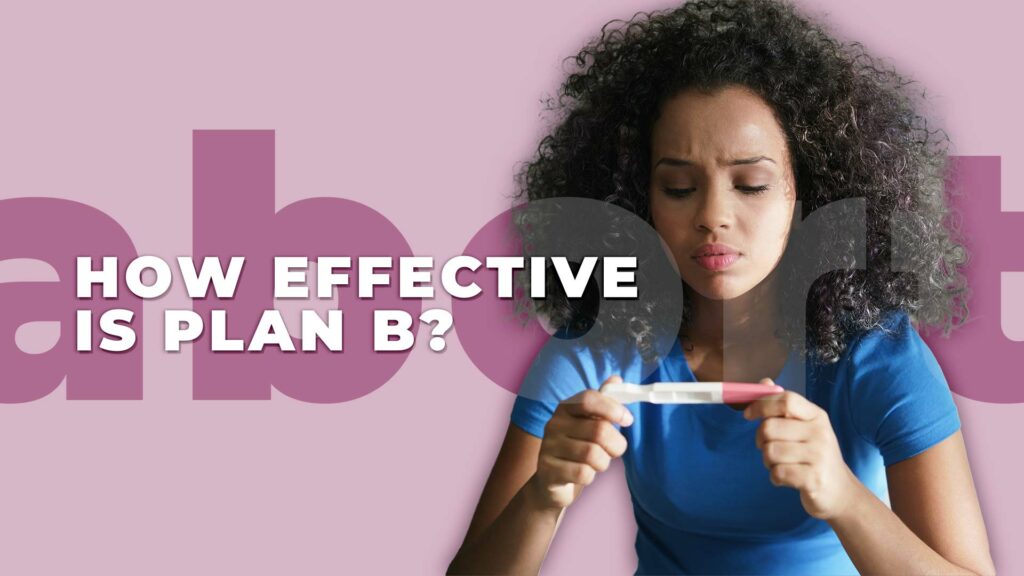
Plan B is a relatively effective emergency contraceptive, but it’s not as reliable as regular birth control methods. It’s recommended to take Plan B within 72 hours (3 days) of having unprotected sex, and the sooner it’s taken, the more effective it is. When taken within this timeframe, Plan B is around 87% effective.
However, research has suggested that the effectiveness of Plan B may decrease for individuals with larger bodies. It’s been found that Plan B may not work as well if you weigh more than 165 pounds. Nevertheless, this is not a reason to avoid using Plan B, particularly if it’s the only emergency contraceptive available to you.
The key factor in the effectiveness of Plan B is timing. The sooner you take it after having sex, the greater the likelihood that it will work.
Which Should You Take: Plan B v/s Abortion Pill?
If you want to avoid pregnancy after having unprotected sex, you may want to consider Plan B or one of its generic versions, such as Next Choice One Dose or Aftera. These medications are a form of birth control that can be used after sex to prevent pregnancy.
On the other hand, if you recently found out that you’re pregnant and you’re not sure if you want to continue with the pregnancy, it’s best to talk to your healthcare provider. They can help you determine if abortion pills, also known as medication abortion, are a suitable option for you. However, not everyone can use abortion pills, and their effectiveness depends on how far along you are in your pregnancy. If you and your healthcare provider decide that abortion pills are not the right choice, there are other abortion options available that you can consider.
How Can You Get Plan B or The Abortion Pill?
Plan B can be obtained without a prescription, and there are no age restrictions on the medication. It is regulated by the FDA and is available in drugstores and online retailers like WushyMommy. However, some pharmacists may refuse to dispense it in areas with abortion restrictions.
Access to medication abortions is more complicated and depends on where you live. President Joe Biden signed an executive order to protect access to FDA-approved abortion medication, but access to medication abortion pills varies by state. Some states require the administering clinician to be a physician, prohibit use after a certain point in pregnancy, or require the clinician to be physically present.
Cost and Availability
The cost of Plan B One-Step is typically between $40-$50, while its generic counterparts such as Take Action, My Way, Option 2, Preventeza, My Choice, Aftera, and EContra are generally less expensive, priced at approximately $11-$45.
The cost of an abortion pill can vary based on the location of the health center and whether you can use private or government insurance. While a medication abortion may cost up to $800, the average cost at WushyMommy is around $184. For more information on cost and available funding options, visit our site.
Final Thoughts
Plan B is an over-the-counter emergency contraception pill that cannot terminate an existing pregnancy. It must be taken within 72 hours of unprotected intercourse to be effective. Mild side effects such as nausea and changes in menstrual cycles are common. If you are pregnant, Plan B is not a suitable option. It’s recommended to consult with your healthcare provider to determine the best course of action.
References
- Baird DT, et al. (2015). Emergency contraception. Widely available and effective but disappointing as a public health intervention: A review.
academic.oup.com/humrep/article/30/4/751/615042 - Classifications for progestin-only contraceptives. (2020).
cdc.gov/reproductivehealth/contraception/mmwr/mec/appendixc.html - Cleland KC, et al. (2014). Emergency contraception review: Evidence-based recommendations for clinicians.
oar.princeton.edu/bitstream/88435/pr1df16/1/nihms621938.pdf - Edelman AB, et al. (2016). Impact of obesity on the pharmacokinetics of levonorgestrel-based emergency contraception: Single and double dosing.
ncbi.nlm.nih.gov/pmc/articles/PMC4944814/ - Emergency contraception. (2015).
acog.org/clinical/clinical-guidance/practice-bulletin/articles/2015/09/emergency-contraception - Emergency contraceptive pill and the abortion pill: What’s the difference? (2021).
reproductiveaccess.org/wp-content/uploads/2014/12/difference.pdf - Fact sheets: Emergency contraception. (2021).
who.int/news-room/fact-sheets/detail/emergency-contraception - FAQ: How your fetus grows during pregnancy. (2021).
acog.org/womens-health/faqs/how-your-fetus-grows-during-pregnancy - Glasier A, et al. (2011). Can we identify women at risk of pregnancy despite using emergency contraception? Data from randomized trials of ulipristal acetate and levonorgestrel.
contraceptionjournal.org/article/S0010-7824(11)00061-8/fulltext - How Plan B works. (2019).
planbonestep.com/how-plan-b-works/ - Jatlaoui TC, et al. (2016). Safety and effectiveness data for emergency contraceptive pills among women with obesity: A systematic review.
contraceptionjournal.org/article/S0010-7824(16)30075-0/fulltext - Kahlenborn C, et al. (2015). Mechanism of action of levonorgestrel emergency contraception.
journals.sagepub.com/doi/10.1179/2050854914Y.0000000026 - Kapp N, et al. (2014). Effect of body weight and BMI on the efficacy of levonorgestrel emergency contraception.
contraceptionjournal.org/article/S0010-7824(14)00750-1/fulltext - Moreau C, et al. (2012). Results from pooled Phase III studies of ulipristal acetate for emergency contraception.
ncbi.nlm.nih.gov/pmc/articles/PMC3766836/ - National Institutes of Health. (2017). About pregnancy.
nichd.nih.gov/health/topics/pregnancy/conditioninfo - Rosato E, et al. (2016). Mechanism of action of ulipristal acetate for emergency contraception: A systematic review.
frontiersin.org/articles/10.3389/fphar.2015.00315/full - Shen J, et al. (2019). Interventions for emergency contraception.
cochranelibrary.com/cdsr/doi/10.1002/14651858.CD001324.pub6/full - Trussell J, et al. (2015). Emergency contraception: A last chance to prevent unwanted pregnancy.
lb7.uscourts.gov/documents/14-23965.pdf - Westley E, et al. (2010). Emergency contraception: Dispelling the myths and misperceptions.
ncbi.nlm.nih.gov/pmc/articles/PMC2855611/

